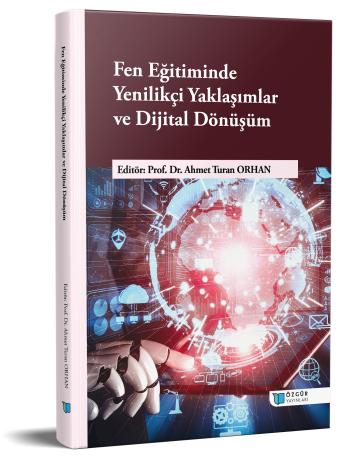
Technology-Supported Argumentation-Based Science Learning Approach
Chapter from the book:
Orhan,
A.
T.
(ed.)
2025.
Innovative Approaches and Digital Transformation in Science Education.
Synopsis
The nature of science teaching requires that science subjects be learned through hands-on experience, research, and inquiry. During science instruction, students are expected to work like scientists, generating knowledge by applying the scientific method similar to that employed by scientists to solve real-life problems. In other words, students must access science topics and concepts through hands-on experience, research, and inquiry, utilizing the same process a scientist uses to generate knowledge. This necessitates the creation of learning environments that enable students to experience the processes scientists use to solve real-life problems and generate knowledge. The argumentation process, in turn, is based on learning through hands-on experience and inquiry, utilizing the scientific method. Argumentation draws its power from the nature of science and scientific inquiry. Considering this, it can be argued that an argumentation-based approach to learning science is well-suited to the nature of science teaching and can create learning environments that allow students to experience the processes scientists use to generate knowledge.
The argumentation process is at the heart of the argumentation-based approach to science learning. Argumentation can be defined as a process of scientific discussion and social interaction, and communication based on the support and evaluation of scientific claims made by students with experimental or theoretical evidence. Unlike everyday discussion, argumentation is not a competitive learning environment based on mutual debate, with winners and losers. On the contrary, it is a social interaction process in which data are obtained through research and inquiry, scientific claims are supported by experimental and theoretical evidence, counterarguments are refuted, supporting justifications are presented, scientific discussion takes place, and knowledge is generated. Students also put their arguments in writing during this process. Written arguments often lead students to perceive the argumentation process as tedious. Technology can be utilized in the argumentation process to make it engaging and motivating, rather than boring. This is because technological applications used in teaching engage students' attention and motivate them to learn thanks to their visual, auditory, verbal, and interactive elements. In this context, the argumentation-based science learning approach can be transferred to a digital environment with a technological application and implemented as a technology-supported argumentation-based learning approach. In this way, the argumentation process can be transformed from boring into engaging and motivating. In this way, an effective science teaching process that is appropriate to the nature of science teaching can be realized.

